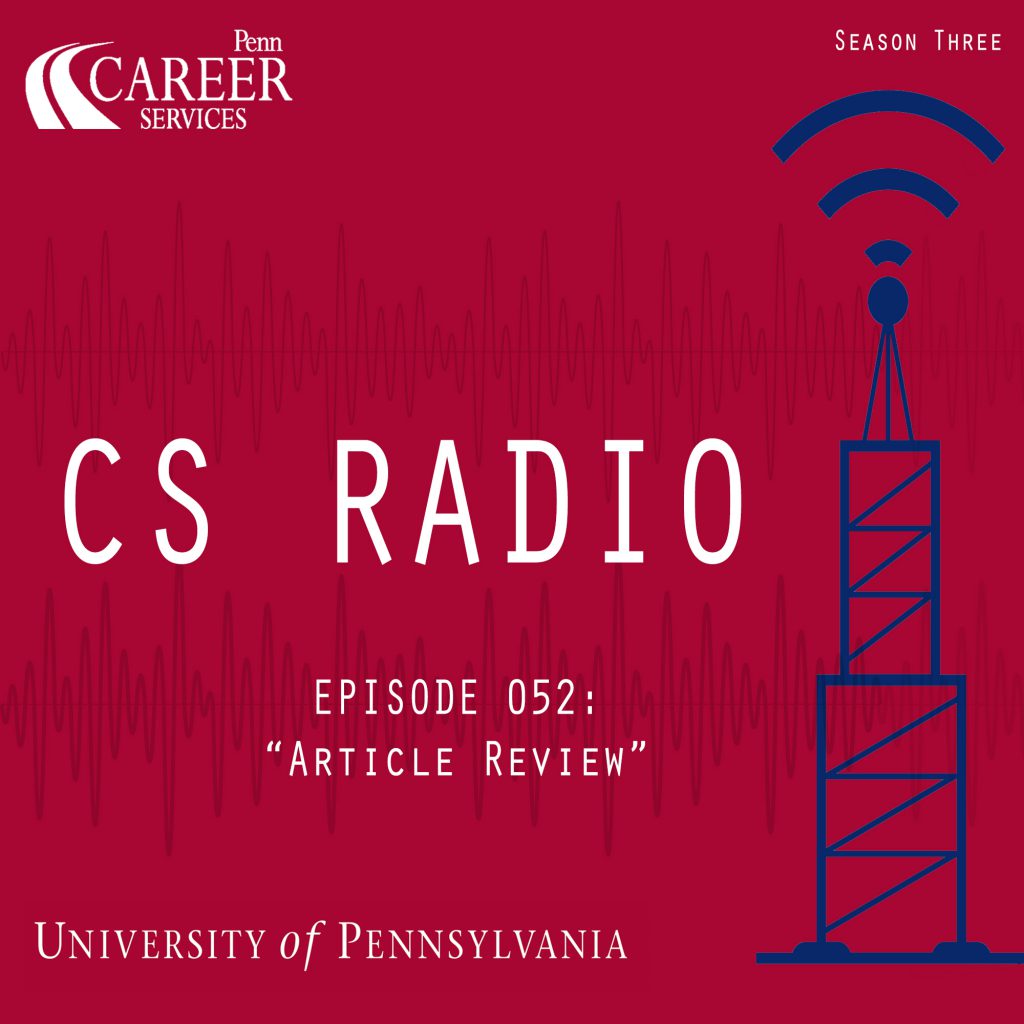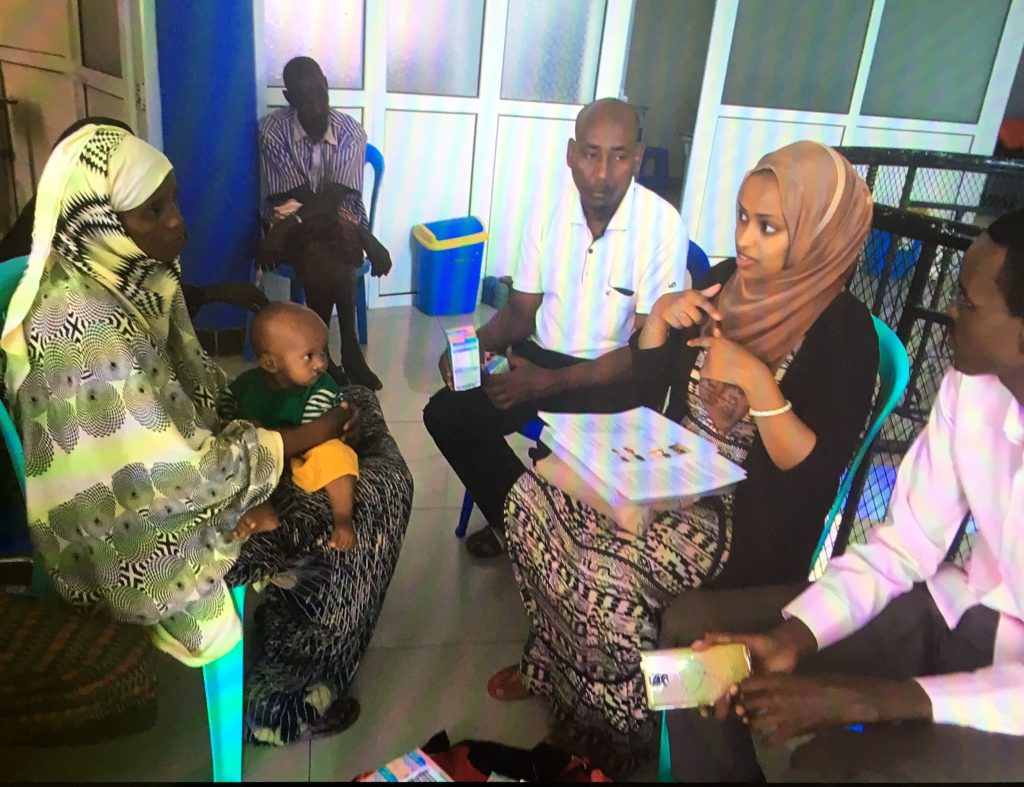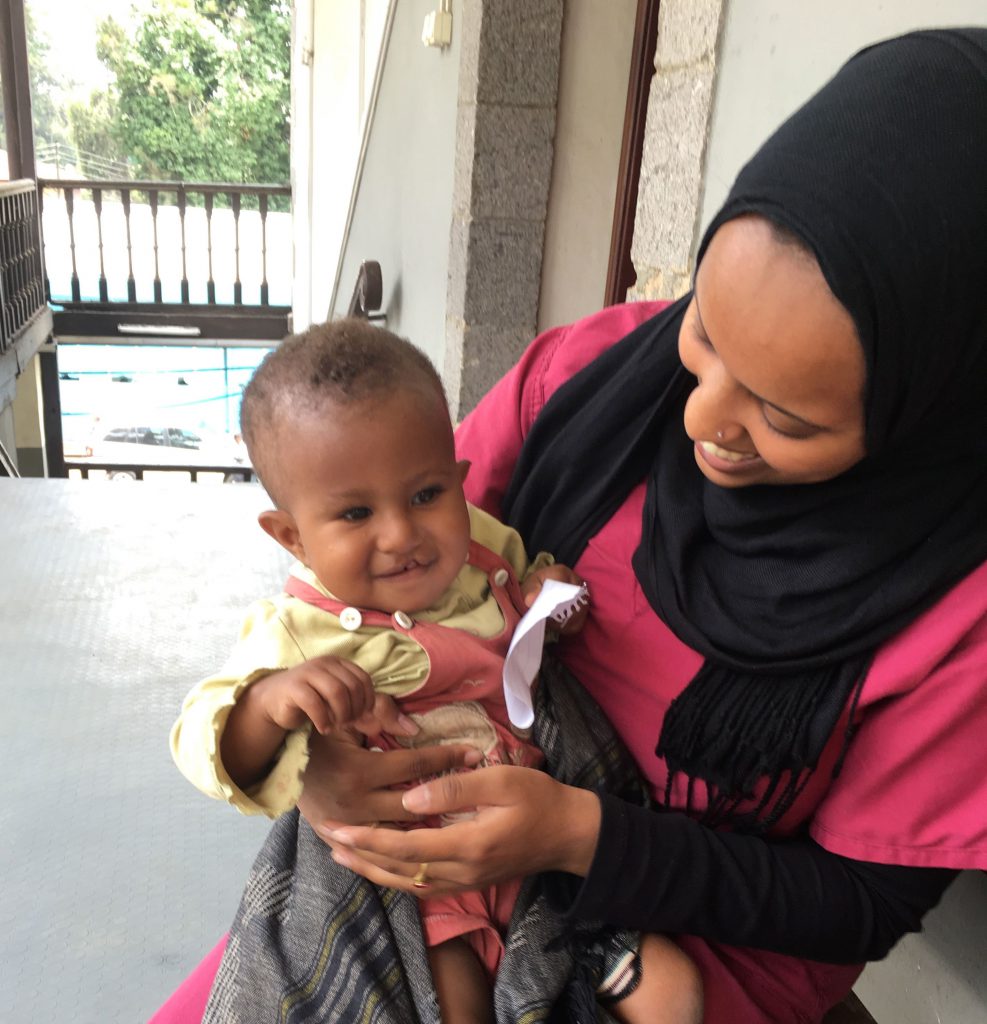This week, we review two articles that recently came across our desks in Career Services. The first talks about a timely subject – using the winter holiday season for your job search. Then we look at a story about being aware of cultural differences about social media when working and volunteering abroad, with a special appearance by social media sensation Savior Barbie. Enjoy!
Don’t let success be seasonal – make time to celebrate it all year long!
The end of the calendar year often gives us all a little more time to reflect upon what has been happening over the last 12 months. They say that time flies when you are having fun, but in reality it seems to fly by whether fun is had or not. When it comes to self-reflection, it is important to approach this as optimistically as possible. Over the last 12 months, you have likely experienced challenges with your research, with your advisor, with you lab-mates, and with friends and family beyond Penn. These challenging experiences will be easy for you to recall as you think back, but it will be equally important to think about some of the challenges that you overcame too. They may connected to some of the same big ones listed above, but they may be small ones. Perhaps you finally got through to a challenging student in a class where you are a TA. Maybe you learned to use a new feature in a software package that makes it easier to do your research (even if the research itself isn’t giving you the results you hope for). And from a career perspective, you might have learnt about a new career path, made a new contact, or discovered some helpful career-management skills from a webinar or workshop.
Academia tends to be an environment rich in critical feedback. Grant applications, article submissions, and even discussions with your advisor all give other people the opportunity to critique your research questions and methods, your findings, and more. All this “helpful” feedback can leave you feeling a little worn down after a while. It is always very refreshing to get some positive feedback and positive reinforcement from time-to-time. If you don’t get this from your advisor, then look for other opportunities to hear about what a great job you are doing. Outside of your teaching and research pursuits, look for opportunities to join student/postdoc run groups, and to get in involved in activities that can have tangible benefits to your personal and professional growth. These experiences can build your career readiness skills – sought by employers from diverse career fields – and give you the chance to use the broader range of skills that you have that don’t always get used in your research.
The other place where you can get positive feedback is from you! Using the Peter Fiske model of professional development (the 80:10:10 rule), you should aim to spend 80% of your active work time (think 9am-5pm, rather than 8am-11pm) doing the best work you can with your research. For 10% of the time you should be focused on your own professional development. This can involve learning new skills, expanding your network, learning about new career options, becoming a better presenter, practicing negotiation, and so on. And the final 10% of the time should be spend telling people what a great job you are doing with all of this. Yes, this sounds strange, but it is always useful to be able to help people to see your value. So, if you get to spend some time with family over the break, don’t get bogged down trying to explain why your research is so complicated and why it is taking so long. Instead, tell people what you have succeeded in doing, and why this is important. Practice the process of helping people to see your achievements. You’ll be doing this in job interviews at some point, and so it is worth practicing this as early on as possible. In fact, you can start right now – write down five successes (big or small) that you have had over the last year, and then find an opportunity to tell different people about them. Hearing yourself talk about your successes is a great way of putting you in a more optimistic mind-set.
Here are my five successes:
- I have successfully adjusted to my new role at Career Services that I started back in January, and I have been enjoying the new focus on strategic program planning, as this aligns nicely with my skills.
- I have met with several students who had been given my name by Penn alumni I had met with a couple of years ago. I appreciate that they remembered me, and I am glad that they felt that I had something useful to offer current students!
- I finally put art up on my walls in my office. I have plenty of animals featured, including cows, ducks, chickens, dolphins, and fish. Since I have a PhD in animal behaviour, this makes me feel quite at home!
- I borrowed the “vision board” approach my wife uses at her work to highlight upcoming goals. Rather than listing tasks, you list the outcome you hope to achieve. There have been several successes so far. I am currently looking at one vision that says “…book proposal submitted”, and I am confident this will happen before the end of the year!
- I presented on our PhD externship program at a conference in St. Louis, and successfully managed to squeeze a lot of content and far too many slides into a 5-minute presentation that actually came off rather well – if I do say so myself!
Reflecting on a Summer in Advertising
This is the next in a series of posts by recipients of the Career Services Summer Funding Grant. We’ve asked funding recipients to reflect on their summer experiences and talk about the industries in which they’ve been spending their summer. You can read the entire series here.
This entry is by Kelsey Serraneu, COL ’19
At Penn you are taught the importance of internships. How internships can set the foundation of your career and boost your success. However, finding an internship that pays enough to support oneself over the summer is difficult. Leading up to my summer, I found an amazing internship in the media industry. It was a paid 10-week internship program at Publicis Groupe working at their advertising agency, Blue 449. Publicis Groupe is one of the top three media companies in the world, and working with one of their agencies would allow me access to some of the most influential people in that industry and give me an exhaustive learning experience. The one con to this internship, was the salary; it wasn’t high enough to provide a sustainable life in New York. Thankfully, I received a Penn Grant from Career Services, so I could embark on this internship.
During my time at Blue 449, I met with the CEO, president, and managing directors. I also worked with a cooperative, intelligent strategy and planning team that introduced me to our client and helped me integrate with the team. With their exposure and help, I learned how to create competitive reviews, rollups, designated market area maps, and point of views. I was fully welcomed at Blue 449 and with their help, I grew to understand the agency side of marketing. They taught me skills that sharpened my analytical techniques and gave me skills that can be applied to various fields and industries.
All of this, wouldn’t have been possible without the Career Services’ Grant. In New York especially, costs are high; thanks to their grant I was able to pay for my transportation costs, groceries, and utility bills. With their help, my stress over money was lessened and I was able to focus on my internship. Career Services helped shaped my career and gave me a experience that I will use wherever I go in my profession; they made my Summer 2017 a memorable one.
Nutrition Mission
This is the next in a series of posts by recipients of the Career Services Summer Funding Grant. We’ve asked funding recipients to reflect on their summer experiences and talk about the industries in which they’ve been spending their summer. You can read the entire series here.
This entry is by Nia Ebrahim, COL ’18
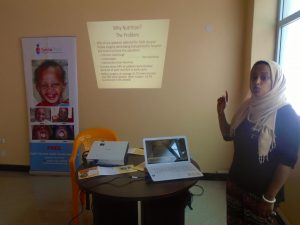 When I learned that I would have the opportunity to work with Project Harar on their new Nutrition Mission, it seemed too good to be true. My interest in nutrition first sparked 5 years ago while I was working with a group of orphans in the small city of Harar, Ethiopia where my family is from. Seeing how malnutrition affected the lives of the children I grew to be so close with inspired me to take a nutrition class when I arrived at Penn, where I fell in love with nutrition as an academic field. As I gained more knowledge about the field and developed more experiences with orphans in Harar, I knew I wanted to be involved in work that helped improve nutritional practices in Ethiopia. Project Harar was doing just that.
When I learned that I would have the opportunity to work with Project Harar on their new Nutrition Mission, it seemed too good to be true. My interest in nutrition first sparked 5 years ago while I was working with a group of orphans in the small city of Harar, Ethiopia where my family is from. Seeing how malnutrition affected the lives of the children I grew to be so close with inspired me to take a nutrition class when I arrived at Penn, where I fell in love with nutrition as an academic field. As I gained more knowledge about the field and developed more experiences with orphans in Harar, I knew I wanted to be involved in work that helped improve nutritional practices in Ethiopia. Project Harar was doing just that.
Packing my bags for very different weather conditions got me excited about the several destinations ahead of me- London, and multiple cities in Ethiopia where my field work would take place- Addis Ababa, Hawassa, Harar, and Dire Dawa. First stop was London, where I spent a week working closely with the Project Harar UK staff to learn more about the organization, plan my trip in Ethiopia, and develop training materials that I would use in my field work (over many cups of tea!). I got to work with Project Harar’s nutritionists, Natasha and Christie, who passed on their knowledge and what they learned from their experiences working in Ethiopia. With amazing support and encouragement from Project Harar director, Victoria Clare, and the rest of Project Harar UK, I felt prepared to fly off to Ethiopia, where I would begin my work on the field with the Ethiopian staff.
Project Harar provides people with facial disfigurements access to treatment, and this year had a focus on nutritional support pre and post treatment. I visited several hospitals in Addis Ababa, Hawassa, and Dire Dawa where I talked to cleft patients and their mothers. In Hawassa, I delivered nutrition training and held a discussion about challenges concerning nutrition with Ethiopian social workers who travelled there from all over the region. In Addis Ababa, I spoke with doctors and nurses about the nutrition situation concerning their cleft patients. One of the most eye opening yet challenging experiences was working with families of cleft patients in Dire Dawa who travelled great distances from one of the poorest regions in the country. I spoke specifically with parents who were told that their child was too malnourished to get the surgery to help them understand why their child could not receive the treatment and what they could do to improve their child’s nutrition status. I spoke personally with each mother and father to better understand their personal situation and give more personalized advice on nutritional practices they could employ. The most challenging thing about working with this group of patients in Dire Dawa was hearing from mothers and fathers that there simply was not enough food available to feed their child. I fought back tears as a mother whose baby was severely malnourished told me that her child rarely ate, because her cleft condition didn’t allow her to breastfeed and because there wasn’t food available to feed feed her daughter. This experience exposed me to the most complex situations in this field I love so much in but also reminded me why I was so drawn to nutrition in the first place.
As I look back at my time with Project Harar, I am still in disbelief about the experiences I got to have, and the work I got to be involved in. It was incredible witnessing the direct impact our work had on people’s lives, and how much the people I worked with- the project Harar team, patients, families, nurses, and doctors- had an impact on me. I know I will forever cherish the memories I made with them, but with a deeper appreciation for this kind of work I am realizing that I will not let my experiences end here.
Skills Not Taught in a Classroom
This is the next in a series of posts by recipients of the Career Services Summer Funding Grant. We’ve asked funding recipients to reflect on their summer experiences and talk about the industries in which they’ve been spending their summer. You can read the entire series here.
This entry is by Charles Augustini, COL ’19
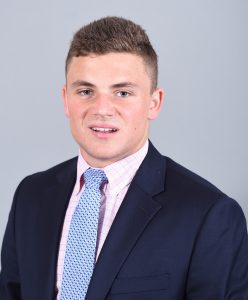 While many of my friends from home spent another summer relaxing on the beach and working at the local ice cream shop, I packed my bags and went off to New York City to sit at a desk—and it was an amazing experience I will never forget. Working as a summer analyst for a boutique investment bank provided the skills and background for me to jumpstart my career in financial services, and I met many great people and made lasting memories along the way.
While many of my friends from home spent another summer relaxing on the beach and working at the local ice cream shop, I packed my bags and went off to New York City to sit at a desk—and it was an amazing experience I will never forget. Working as a summer analyst for a boutique investment bank provided the skills and background for me to jumpstart my career in financial services, and I met many great people and made lasting memories along the way.
Early on in my time at Penn, I identified that the financial services industry would be the best fit for my career after college. My teammates were working in finance, I liked the competitive nature of the industry and I admired the drive it took to be successful. However, until this summer, I knew next to nothing about the technical aspects or how analysts actually create value for a firm. As a PPE major in the College of Arts & Sciences, I simply lacked the practical background of my Wharton classmates. Fortunately, this lack of understanding all changed when I was given the opportunity to work at a boutique investment bank in New York City this summer.
The first few days in the office felt like the first week of college—a whirlwind of meeting new people, learning my role and establishing efficient habits. My eagerness to learn and propensity to put extra effort into each of my tasks earned me an invitation to join the firm’s Energy Group, which involved working on several live deals. Within the Energy Group, I learned from experienced associates and worked on important tasks, both collaboratively and independently.
Within a matter of weeks, I realized working as an analyst provides skills that aren’t taught in a Wharton classroom or learned by reading Breaking into Wall Street. As a result of the teaching I received from the firm’s directors and associates, I progressed from modifying Power-Points for both buy-side and sell-side deals to creating confidential information memorandums for live deals, adding sections to the firm’s pitch book, creating financial summaries of oil and gas companies and screening investors. Along with receiving hands-on training, I attended numerous meetings with clients and became skilled in analyzing financial databases such as CapIQ, Bloomberg Terminal and Preqin.
Although my summer wasn’t spent on the beaches of Cape Cod, I found more fulfillment in New York City than I would have anywhere else. With each live deal I worked on, I gained insight and real-world knowledge. Additionally, I received important advice from everyone in the firm including analysts, associates and directors, which is a benefit I would not have experienced at a larger firm. As a result of my fantastic summer experience, I am now prepared to land another great summer internship offer during OCR and I believe I am on the right path to a successful career in the financial services industry.


